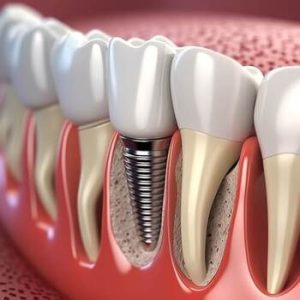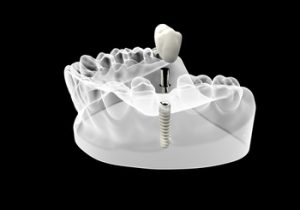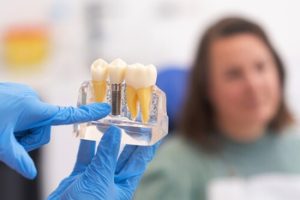In Australia, dental health is vital to overall wellbeing, yet many of us sometimes face the challenge of missing teeth. Single-tooth implants stand out for their durability and functionality among many tooth replacement options. Understanding Australia’s single-tooth implant cost is crucial for anyone considering this advanced dental solution. This guide aims to provide a extensive overview of single-tooth implant costs. Australia would be our main focus in this article. We will blend professional insights with an engaging narrative to navigate the intricacies of single-tooth implants, including their benefits, procedures, and costs.
What are Single Tooth Implants?
Single-tooth implants are a cutting-edge solution designed to replace missing teeth. Unlike traditional bridges or dentures, a dental implant consists of a titanium post surgically adjusted into the jaw bone, acting as a root for the artificial tooth. Over time, this post adjusts with the jawbone in an osseointegration process, providing a stable foundation for a crown that mimics your natural teeth in appearance and function.
Benefits of Single Tooth Implants

Mimicking Natural Teeth
One of the most significant advantages of single-tooth implants is their ability to replicate natural teeth in both appearance and function closely. This is largely attributable to the precision and care taken during dental implant surgery. The titanium post that is inserted into the jawbone acts as a new root, providing a strong and durable anchor for the replacement tooth. This direct bond with the jawbone ensures that the implant appears, feels, and functions just like your natural teeth, restoring your smile’s aesthetic and your bite’s functionality with unparalleled accuracy.
Preserving Jaw Bone and Preventing Bone Loss
Dental implant surgery directly addresses jaw bone degradation, a common consequence of tooth loss. When a tooth is missing, the area of the jawbone that supported it begins to deteriorate due to a lack of stimulation.
This can lead to significant bone loss over time, affecting the facial structure and the integrity of adjacent teeth. Implanting a titanium post stimulates the bone, much like an original tooth root would, helping to preserve the jaw bone and prevent further bone loss. This stimulation is crucial for maintaining facial structure and oral health.
Longevity and Durability
Thanks to the advancements in dental implant surgery, single-tooth implants are crafted to last a lifetime with proper upkeep and maintenance. The titanium used in implants is biocompatible, meaning the body does not reject it and integrates well with the jawbone. This integration, known as osseointegration, provides a level of durability that other tooth replacement options cannot match. Unlike bridges and dentures, which may need to be fixed every 5 to 10 years, dental implants can remain a lifelong fixture in your mouth, making them a cost-effective solution in the long run.
Improving Oral Health and Comfort
Single-tooth implants contribute significantly to improved oral health. Since they don’t require altering or anchoring to adjacent teeth, as bridges do, they preserve the integrity of your natural teeth.
This aspect of dental implant surgery minimises the risk of damaging surrounding teeth, promoting a healthier oral environment. Additionally, implants eliminate the discomfort and inconvenience associated with removable dentures, offering a fixed and comfortable solution that feels just like your original teeth.
Enhancing Self-Esteem and Quality of Life
The benefits of single-tooth implants extend beyond the physical to impact psychological well-being. The completeness and confidence of a full smile can profoundly affect self-esteem and social interactions.
Dental implant surgery provides a pathway to restoring not just a tooth but a person’s overall quality of life. Being able to eat, laugh, and speak without worry or discomfort brings a sense of freedom and confidence that is invaluable.
In conclusion, the benefits of single-tooth implants, underscored by the advanced techniques of dental implant surgery, offer a compelling case for those considering tooth replacement options. From preserving jaw bone integrity to enhancing the quality of life, single-tooth implants represent a superior selection for individuals looking to restore their smile and oral health.
Dental Implant Procedure
The procedure for placing a dental implant is a testament to modern dentistry’s capability to restore smiles with precision and care. This multi-step process is meticulously planned and executed to ensure the best possible outcomes for patients. It encompasses a series of stages, from initial consultation to the final placement of the crown. Here, we delve into each phase of the dental implant procedure, emphasising the crucial role of straight tooth implant placement for achieving optimal results.
Initial Consultation and Planning
The first stage, the dental implant procedure, is a comprehensive consultation, which includes a detailed examination of the patient’s oral health, dental history, and specific needs. This stage may involve digital imaging techniques, such as X-rays or CT scans, to assess the condition of the jawbone and the precise location of the implant. The goal is to craft a customised treatment plan that ensures straight tooth implant placement and addresses any potential challenges.
Preparation and Tooth Extraction
If the tooth to be replaced is still present and needs to be extracted, this is done carefully to minimise the impact on the surrounding bone and tissues. For patients with insufficient bone density or quality, preparatory treatments such as bone grafting may be necessary to strengthen the site for the implant. These preparatory steps are essential for ensuring a solid foundation for the implant and facilitating straight-tooth implant placement.
Implant Placement Surgery

Osseointegration
After the implant is placed, a period of healing known as osseointegration begins, during which the implant fuses with the jawbone. This process can take several months but is crucial for providing the strength and stability of a natural tooth root. Throughout this phase, patients may be fitted with a temporary crown to safeguard the implant and maintain the aesthetics of their smile.
Abutment Placement
Once osseointegration is complete, the next step involves placing the abutment, which is a connector piece that attaches the crown to the implant. This minor surgical procedure is typically done under local anaesthesia. The gum tissue is opened again to expose the implant, the abutment is attached, and then the gum tissue is closed around but not over the abutment.
Crafting and Fitting the Crown
The final stage in the dental implant procedure is crafting and fitting the crown, the visible part of the implant that looks like a natural tooth. Impressions of the patient’s mouth are taken to create a custom crown that resembles the colour, shape, and size of their natural teeth. Once the crown is ready, it is securely attached to the abutment, completing the implant process.
The meticulous steps involved in dental implant procedures, especially the emphasis on straight-tooth implant placement, highlight the precision and care that define modern dental practices. This extensive approach ensures that each patient receives a functional, aesthetically pleasing, and long-lasting solution to missing teeth.
Starting Cost of Single Tooth Implants
In Australia, the starting cost of a single tooth implant can vary widely, generally ranging from $3,000. This estimate includes the surgery for placing the implant and the crown. It’s vital to note that the total cost can elevate depending on specific requirements, such as bone grafting or custom fabrication needs.
Factors Affecting the Cost
Understanding the factors that affect dental implant cost is crucial for anyone considering this procedure. Dental implants represent a major investment in your oral health, offering a durable, functional, and aesthetic solution for missing teeth.
However, the dental implant cost can vary widely, influenced by several key factors. This comprehensive exploration will delve into these variables to provide a clearer picture of what contributes to the overall cost of dental implants.
Complexity of the Procedure
The complexity of your specific dental implant procedure significantly impacts the cost. Simple cases where a patient has adequate bone density and health may require less invasive surgery, reducing the overall cost. Conversely, more complex situations involving bone grafting, sinus lifts, or the need to address periodontal disease can increase the procedure’s complexity and, subsequently, the cost.
Number of Implants and Need for Additional Procedures
The total number of implants you need directly influences the cost. A single dental implant will be less expensive than multiple implants. Furthermore, additional procedures such as extractions of failing teeth or treatments for existing oral health issues can add to the overall expense. Each added procedure increases not only the time and materials needed but also the expertise required from the dental team.
Bone Grafting
Bone grafting is a common prerequisite for patients who lack sufficient jawbone density to support dental implants. This process involves adding bone or bone-like materials to the jaw to strengthen it enough to hold the implants securely. The need for bone grafting adds a separate layer of cost due to the additional materials, surgical time, and expertise required.
Type and Quality of Materials Used
The materials used for the implant post and crown can significantly affect the price. Titanium is the most commonly used material for the implant itself due to its durability and biocompatibility. Still, zirconia implants are also an option for those looking for a metal-free alternative, which might be more costly. Similarly, the choice of material for the crown (porcelain, zirconia, composite, etc.) can vary in price, with high-quality, natural-looking materials typically costing more.
Geographic Location
The geographical location of the dental practice plays a notable role in determining the dental implants cost. Urban areas with a higher cost of living tend to have higher rates of dental services than rural areas. This variation is due to differences in operational costs, including rent, wages, and equipment costs, which are passed on to the patient.
Dental Professional’s Expertise and Experience
The expertise and experience of the dental professional carrying out the implant surgery can also affect the cost. Highly qualified and experienced dental professionals may charge more. However, their expertise often translates to a higher success rate, potentially reducing the risk of costly complications.
Laboratory Fees
Custom-made dental implants require the craftsmanship of a dental laboratory, which constructs the crown based on specific measurements and material choices. The fees charged by the lab for this customisation can vary, impacting the overall dental implant cost. High-end labs that use superior materials and advanced technology to create crowns that closely mimic natural teeth may charge more.
Dental Insurance and Financing Options
While not directly affecting the upfront cost, the availability of dental insurance coverage or financing options can influence the overall financial impact of dental implants. Some insurance plans offer partial coverage for dental implants, reducing out-of-pocket expenses. Additionally, many dental practices provide:
- Financing plans.
- Allowing patients to spread the cost over time.
- Making the procedure more financially manageable.
Aftercare and Maintenance
Post-operative care and long-term maintenance are essential for the success of dental implants, contributing to additional costs. Follow-up visits, professional cleanings, and potential adjustments or repairs to the implant or crown can incur further expenses. Investing in proper aftercare is vital for ensuring the longevity of the implants, but it also adds to the total cost.
Technological Advancements

In summary, dental implant costs are influenced by a multifaceted array of factors, from the complexity of the individual’s dental needs to the materials and technology used.
Understanding these elements can help prospective patients navigate their dental implant journey more effectively, setting realistic expectations for the investment required to restore their smile. It’s essential to talk with a dental professional to receive a personalised estimate that considers all these variables, ensuring you make an informed decision about this life-changing procedure.
Dental Health Insurance Benefits
Dental health insurance may cover a portion of the cost of dental implants. It’s essential to review your policy details and discuss coverage with your insurance provider. Some plans may include benefits for implants, while others might only cover less expensive tooth replacement options.
Conclusion
Embarking on the journey to fix a missing tooth with a single dental implant is a significant decision that promises to enhance your oral health and quality of life. Understanding the single-tooth implant cost in Australia is the first step towards making an informed choice. While the early investment might seem high, the long-term benefits of dental implants—from improved oral health to the restoration of natural function and aesthetics—cannot be overstated.
Dental implants offer a durable solution for missing teeth, providing a foundation for future oral health and well-being. If you’re considering a single-tooth implant, you should talk with a dental professional who can give personalised advice based on your required needs.
If you are ready to explore the possibility of a single-tooth implant or seek more information on dental implant costs and procedures, contact Cross Road Dental at (08) 8004 5137.
Our team of experts is committed to giving you the highest quality care, ensuring that your dental implant journey is smooth, transparent, and tailored to your requirements. Unlock the door to a brighter smile and improved quality of life with Cross Road Dental today.
Note: Any surgical or invasive procedure carries risks. Before proceeding, you should seek a second opinion from an appropriately qualified health practitioner.
References:
https://pubmed.ncbi.nlm.nih.gov/10212534/
https://www.healthline.com/health/dental-and-oral-health/benefits-of-dental-implants

